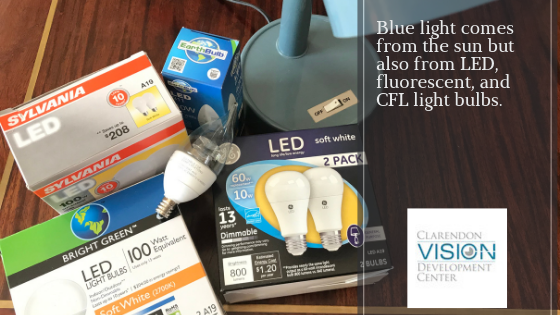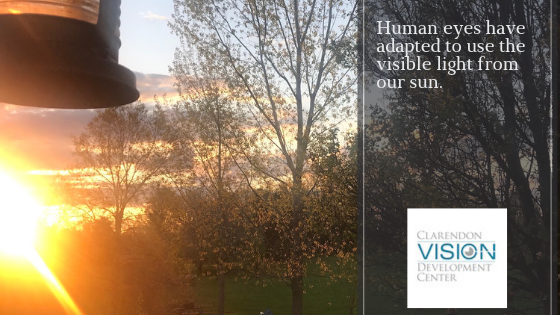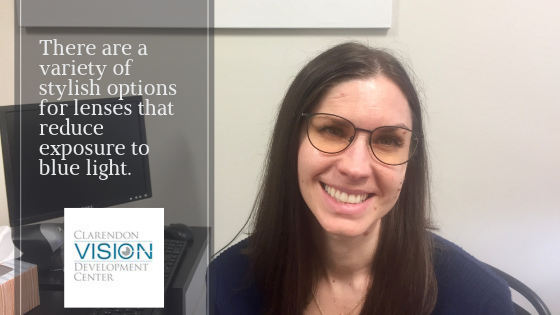What’s the Buzz About Blue Light?
Recent research has shown in a lab setting (this is an important note, as these studies were not done with humans or animals, but rather lab-grown tissues) excessive blue light can damage human cells. While a lot of headlines then proclaimed that blue light can damage vision, that’s an oversimplification of the research. Blue light comes from our sun and also from our LED lightbulbs, computer screens, and cell phone and other digital conveniences of the modern age. It can be difficult in today’s fast-paced environment to avoid using these technology tools.

What does this mean?
Human eyes have adapted to use the visible light from our sun. In the daytime, sunlight helps us be alert and see our environment. In the evenings, the lack of sunlight helps our bodies get ready to sleep and rest.

One problem of the modern era is that we’ve developed technologies like fluorescent/LED lightbulbs that let us extend our ability to see after sundown. We’ve created devices that put the wealth of the world’s knowledge at our fingertips. Artificial light, computer monitors, cell phones, tablets, are all in common use throughout much of human society. These devices all emit blue wavelengths of light similar to that of the sun, which confuses our bodies and inhibits our natural methods of settling in to rest at the end of a day.
What should I do about it?
Researchers are still studying what this increased exposure to blue light is doing to humans and whether and how this may impact our vision. But the research is clear that excessive exposure to blue light in the evenings tends to reduce our body’s natural mechanisms to get ready for sleep. For this reason and due to concerns that there might be an impact on vision to extra blue light exposure, most health care providers recommend you limit your exposure to screens for at least 2 hours before bedtime. Most computers, tablets, and phones also offer night-mode apps or settings you can use to reduce the amount of blue light coming from your screens.

If reducing screen use before bed is not possible or if you feel you’re having problems with screens and evenings, you can consider a coating for your glasses or lenses that’s designed to filter out some blue light. There are a variety of options and degrees of blue blocking available. These coatings are much more subdued than what you might remember from blue-blocker sunglasses of years past. Clarendon Vision’s optical shop includes many stylish options for you. Schedule an appointment or stop in soon to take a look at functional and fashionable choices in vision wear that can also help you limit your exposure to blue light. And stay tuned for a future article about Computer Vision Syndrome, something we’ve touched on in previous months and will revisit with more information soon.
P.S. If you have a child in your household who would like to learn more about electromagnetic waves like the light that comes from the sun, this Khan academy page is a good place to start.



